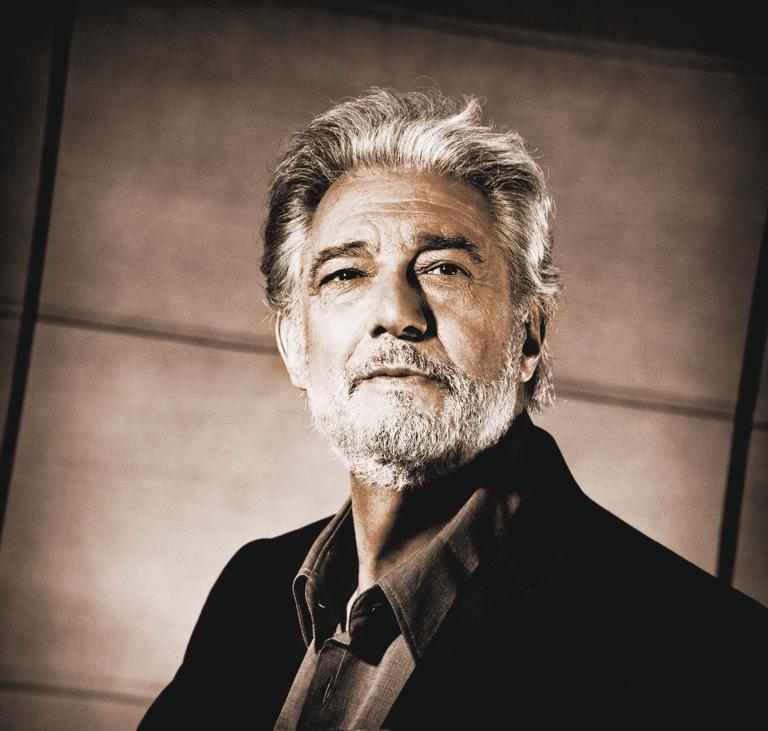
Music Review
PlÁcido Domingo
At Boch Center Wang Theatre, Thursday night
Whether Spanish operatic megastar Plácido Domingo is still a tenor is up for debate, but he is and likely ever will be a showman. “If I rest, I rust,’’ he has said many times, and with a globe-trotting calendar of singing and conducting as well as presiding over his Operalia, The World Opera Competition, rest is not on the agenda. His mane may be silvered, and he may not be able to roar to the heavens as he once could, but Thursday night at the Boch Center Wang Theatre, the venerable lion showed us all he can still be king.
At 77, his voice has exchanged molten gold for burnished bronze, and he has recently tackled the baritone roles of various Verdi patriarchs. Accordingly, the evening’s first half was almost all Italian, and heavy on the Verdi. Arias and duets featuring Domingo alternated with orchestral overtures and solos for two young guest sopranos, Micaëla Oeste and Camila Titinger.
Oeste’s “Je veux vivre’’ was labored, but her Violetta opposite Domingo’s Giorgio Germont in a “Traviata’’ duet was ardent, with a steely glint. Titinger, a 2017 Operalia finalist with a luxuriant lyric voice, skipped through the vocal hopscotch of selections from “Il trovatore’’ with ease.
The evening’s second half called on operetta, Broadway, and popular song. Domingo brought out his son, Plácido Jr., for a duet: the syrupy ’80s crossover hit “Perhaps Love.’’
The space didn’t do anyone any favors. Both spoken and sung English were unintelligible. The Eugene Kohn-led orchestra was lithe and nimble, but it sounded as if someone was perpetually pressing a mute pedal, even in the raring overture to “Candide.’’ The vocalists were singing into onstage microphones, which greatly restricted their movement. In addition, the programs did not include translations, and there were no supertitles.
Still, good singing is good singing. Even locked to the microphones, Domingo’s dramatic expression was sincere and impassioned, and he knows how to make the most of his still formidable voice. Also, a king needs his loyal subjects, and it seemed that he could have sung the dictionary and still garnered a standing ovation.
The program finished with a hit parade of Spanish songs, including an “Amor, vida de mi vida’’ that was Domingo’s most luminous contribution of the evening. “Granada’’ fell in the middle of a lengthy string of encores and ovations. An audience member in front of me kept raising his arms to the sky as if the whole shebang had been his triumph.
PlÁcido Domingo
At Boch Center Wang Theatre, April 26
Zoë Madonna can be reached at zoe.madonna@globe.com. Follow her on Twitter @knitandlisten. Madonna’s work is supported by the Rubin Institute for Music Criticism, San Francisco Conservatory of Music, and Ann and Gordon Getty Foundation.



